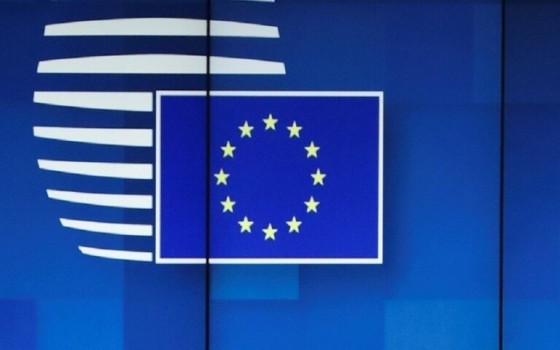
تغليظ العقوبات في القانون الجنائي لدول الاتحاد الأوروبي لمكافحة جرائم الاعتداء الجنسي على الأطفال

- Europe and Arabs
- الجمعة , 13 ديسمبر 2024 12:6 م GMT
بروكسل : أوروبا والعرب
على هامش اجتماعات وزراء الداخلية والعدل في دول الاتحاد الأوروبي اليوم الجمعه ، وافق المجلس على موقفه بشأن اقتراح لتحديث قواعد القانون الجنائي للاتحاد الأوروبي بشأن الاعتداء الجنسي على الأطفال والاستغلال الجنسي للأطفال. تعمل القواعد المنقحة على توسيع تعريف الجرائم، والتأكد من تجريم جميع أشكال الاعتداء الجنسي على الأطفال والاستغلال الجنسي، بما في ذلك تلك التي يتم تمكينها أو تسهيلها من خلال أدوات الإنترنت الجديدة. كما أنها تقدم عقوبات أعلى وتحتوي على متطلبات أكثر تحديدًا للوقاية والمساعدة للضحايا. وبحب بيان أوروبي وزع في بروكسل هذا الموقف هو الأساس للدخول في محادثات مع البرلمان الأوروبي للموافقة على قانون نهائي. ونقل البيان عن وزير العدل المجري بينس توسون التي تتلى بلاده الرئاسة الدورية الحالة للاتحاد القول بان "يجب أن تكون حماية الفئات الأكثر ضعفًا في مجتمعاتنا - الأطفال - أولويتنا. من خلال هذه القواعد الجديدة، نعزز مكافحة الاعتداء الجنسي على الأطفال، بما في ذلك فيما يتعلق بالبث المباشر للإساءة أو استخدام الذكاء الاصطناعي لتوليد مواد الإساءة."
تعريف موسع للجرائم الجنائية
من أجل ضمان تجريم جميع أشكال الاعتداء الجنسي على الأطفال والاستغلال الجنسي، وافقت الدول الأعضاء على تحديث تعريف هذه الجرائم. وبموجب القواعد الجديدة، تلتزم الدول الأعضاء بتجريم جريمة بث الاعتداء الجنسي على الأطفال والتحقيق فيها وملاحقة مرتكبيها. وقد تزايدت في السنوات الأخيرة عمليات دفع الأموال للحصول على حق الوصول إلى بث مباشر للاعتداء الجنسي على الأطفال.
كما تضمن التوجيه المحدث تضمين صور واقعية لمواد الاعتداء الجنسي على الأطفال في تعريف الجريمة. وهذا من شأنه أن يجعل من الممكن الاستجابة بشكل أفضل للظهور المتزايد للمواد الإباحية المزيفة أو التي يتم إنشاؤها بواسطة الذكاء الاصطناعي.
بالإضافة إلى ذلك، قدم المجلس جريمة تقديم تعليمات حول كيفية ارتكاب الاعتداء الجنسي على الأطفال أو الاستغلال الجنسي أو إغراء الأطفال لأغراض جنسية. على سبيل المثال، يعاقب الشخص الذي يوزع وينتج دليلاً - سواء كان منشورًا أو كتابًا أو دليلًا عبر الإنترنت - يساعد الآخرين على الاعتداء الجنسي على طفل.
عقوبات أعلى
تم تشديد العقوبات على العديد من الجرائم. على سبيل المثال، عندما يتم الاعتداء على حالة طفل ضعيف بشكل خاص، وخاصة بسبب الإعاقة، للانخراط جنسيًا مع طفل، فسيتم معاقبة الجاني بأقصى عقوبة سجن لا تقل عن 10 سنوات (بدلاً من 8 سنوات في الوقت الحاضر). تصل أقصى عقوبة سجن إلى 5 سنوات على الأقل، من 3 سنوات الحالية، عندما يبلغ الطفل سن الرشد الجنسي.
قد تنص الدول الأعضاء على عقوبات أكثر صرامة في تشريعاتها الوطنية.
الموافقة
كما هو الحال في التشريع الحالي، يظل من اختصاص الدولة تحديد سن الرشد الجنسي، أي السن الذي يُحظر فيه ممارسة الأنشطة الجنسية مع طفل دون سن الرشد.
ومع ذلك، تنص القواعد المعدلة بشكل أكثر وضوحًا على أن ممارسة الأنشطة الجنسية مع الأطفال الذين بلغوا سن الرشد الجنسي يجب أن تكون جريمة يعاقب عليها القانون إذا لم يوافق الطفل. وتنص التوجيه على أن الموافقة يجب أن تُعطى طواعية، باعتبارها إرادة الطفل الحرة، ويمكن سحبها في أي وقت. كما تنص على أنه لا يمكن اعتبار الموافقة موجودة في الحالات التي يكون فيها الطفل غير قادر على تكوين إرادة حرة.
تعزيز الملاحقة القضائية ودعم الضحايا
من أجل ضمان قدرة الضحايا على السعي إلى العدالة بشكل فعال، قدم المجلس فقرة جديدة بشأن فترات التقادم. كما تضمن القواعد الجديدة إمكانية التحقيق في الجرائم وملاحقتها لفترة زمنية كافية بعد بلوغ الضحية سن الرشد. وتتراوح هذه الفترة من 10 سنوات على الأقل للجرائم التي يعاقب عليها بعقوبة قصوى لا تقل عن خمس سنوات سجنًا، إلى 20 عامًا على الأقل للجرائم التي يعاقب عليها بعقوبة قصوى لا تقل عن 10 سنوات سجنًا.
وستساهم القواعد الجديدة أيضًا في تسهيل الإبلاغ عن الاعتداء الجنسي على الأطفال أو الاستغلال الجنسي للأطفال. وسيتعين على الدول الأعضاء ضمان تمكين الضحايا من الإبلاغ عن هذه الجرائم من خلال قنوات يمكن الوصول إليها وسهلة الاستخدام وآمنة ومتاحة بسهولة (عبر الإنترنت). وينبغي تصميم المعلومات حول كيفية الإبلاغ عن الاعتداء الجنسي والأدوات اللازمة لهذا الغرض وإتاحتها بطريقة صديقة للأطفال واستخدام لغة صديقة للأطفال.
كما سيتم تحسين الدعم لضحايا الاعتداء الجنسي على الأطفال واستغلالهم جنسيًا. ووفقًا لنص المجلس، يجب توفير الرعاية الطبية المناسبة لأعمار ضحايا هذه الجرائم، والدعم العاطفي والنفسي والنفسي الاجتماعي والتعليمي، فضلاً عن المشورة القانونية. كما ستتضمن التوجيهات الجديدة قواعد بشأن الإقامة المؤقتة للضحايا.
التعويض
يتضمن موقف المجلس قواعد جديدة بشأن تعويض الضحايا والناجين من الاعتداء الجنسي على الأطفال. ووفقًا لموقف المجلس، يتعين على الدول الأعضاء ضمان حصول الضحايا على الحق في المطالبة من الجاني بالتعويض عن الأضرار التي لحقت بهم نتيجة للجرائم كما هو محدد في توجيه الاتحاد الأوروبي هذا.
جمع البيانات والبحث من أجل رصد وتقييم ظاهرة الاعتداء الجنسي والاستغلال الجنسي للأطفال، فإن جمع البيانات يشكل جوهر الأمر. وبالتالي فإن القواعد الجديدة تلزم الدول الأعضاء بوضع نظام لجمع وتطوير وإنتاج ونشر الإحصاءات المتعلقة بالجرائم.
وتتضمن الإحصاءات التي يتعين على الدول الأعضاء جمعها العدد السنوي للجرائم المبلغ عنها والإدانات بالجرائم والعدد السنوي للأشخاص الذين تتم مقاضاتهم وإدانتهم بالجرائم المعنية.
الخطوات التالية
على أساس النهج العام المتفق عليه اليوم، سيتمكن المجلس من الدخول في مفاوضات مع البرلمان الأوروبي. ولم يحدد البرلمان موقفه بعد.
وبمجرد اعتمادها، سيتعين على الحكومات الوطنية تكييف قوانينها الجنائية لجعلها متوافقة مع التوجيه المنقح للاتحاد الأوروبي.
تم الاتفاق على القواعد الحالية للاتحاد الأوروبي بشأن الاعتداء الجنسي والاستغلال الجنسي للأطفال في عام 2011. ووجدت دراسة أجراها الاتحاد الأوروبي أن زيادة حضور الأطفال على الإنترنت والتطورات التكنولوجية تشكل تحديات لإنفاذ القانون وتخلق إمكانيات جديدة للإساءة. والمراجعة التي هي الآن على طاولة المشرعين في الاتحاد الأوروبي تهدف إلى أخذ هذه التطورات في الاعتبار.
يأتي هذا التحديث لقواعد القانون الجنائي مكملاً لمقترح يحدد التزامات شركات الإنترنت فيما يتعلق بالكشف عن مواد الاعتداء الجنسي على الأطفال والإبلاغ عنها وإزالتها من خدماتها. ولا تزال المفاوضات بشأن هذا الاقتراح جارية.












لا يوجد تعليقات